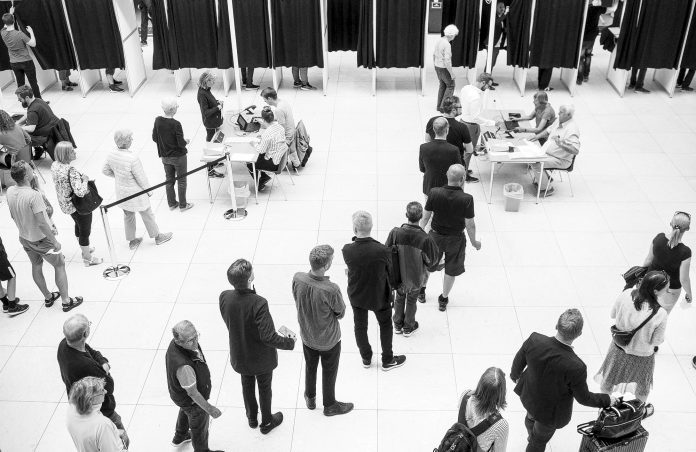
Early results and exit polls from Denmark’s general election Wednesday suggested left-leaning parties making gains and the country’s populists fading, which if confirmed by final returns would put the main opposition Social Democrats back in power after four years.
The party led by 41-year-old Mette Frederiksen, which vowed a tough stance on immigration while campaigning, got 25.3% of the vote, according to an exit poll for broadcaster DR. An exit poll by broadcaster TV2 showed a similar picture.
Other left-leaning parties also made gains. If those parties supported the Social Democrats to form a “red bloc,” a Social Democrat-led government would have 90 votes in the 179-seat parliament, a majority.
The exits polls and vote count showed the Liberal Party of Prime Minister Lars Loekke Rasmussen with a slight gain from four years ago. But the support the opposition was getting and what looked to be a huge loss for the populist Danish People’s Party means he would no longer muster a majority in the 179-seat Folketing.
The Danish People’s Party’s performance was a contrast to some other European countries, where far-right populists are on the rise. The party, a backer of Rasmussen’s center-right government and the second-largest party in the outgoing parliament, received about 9.8% of the vote, according to early returns, compared to 21.1% in 2015.
Many Danish People’s Party voters have drifted to the Social Democrats, mainly because of it readopting strict views on immigration. The party advocated restricting immigrant in the 1980s and 1990s, but softened its position later while in a coalition with left-wing parties.
Its lawmakers have voted for several of the center-right government’s laws to tighten immigration.
“This is really, really bad,” party leader Kristian Thuesen Dahl said, adding the party would not change its politics because of the loss.
However, the Hardliner Course and New Right, two openly anti-Muslim groups that fielded candidates for the first time, were hovering around the 2% threshold to enter Parliament.
The Social Democrats have said they want to form a one-party government headed by Frederiksen, who would become Denmark’s youngest-ever prime minister. The party has said it would seek support on the right when it comes to immigration issues and on the left for matters like social welfare.q



















